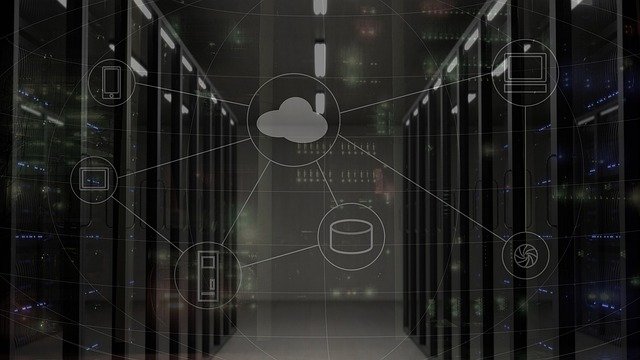Overview of Google Cloud Platform services and solutions
Google Cloud Platform has emerged as a powerful force in the cloud computing industry, offering businesses and developers a comprehensive suite of tools and services. From data storage and machine learning to application hosting and analytics, GCP provides infrastructure that scales with organizational needs while maintaining enterprise-grade security. Understanding the breadth of services available and how they interconnect can help organizations make informed decisions about their cloud strategy and digital transformation initiatives.

Google Cloud Platform represents a collection of cloud computing services that run on the same infrastructure Google uses internally for products like Search, Gmail, and YouTube. Organizations worldwide leverage GCP to build, deploy, and scale applications, websites, and services on a highly reliable and secure infrastructure. The platform encompasses computing power, data storage, data analytics, and machine learning capabilities designed to meet diverse business requirements.
How GCP supports scalable and secure cloud computing
Scalability stands as one of the foundational strengths of GCP architecture. The platform automatically adjusts resources based on demand, allowing applications to handle traffic spikes without manual intervention. Google Compute Engine provides virtual machines that can scale from single instances to thousands, while Google Kubernetes Engine orchestrates containerized applications across clusters. Security measures include encryption at rest and in transit by default, identity and access management controls, and compliance certifications for various industry standards including HIPAA, PCI-DSS, and SOC 2. The global network infrastructure spans multiple regions and availability zones, ensuring high availability and disaster recovery capabilities. Virtual Private Cloud networking allows organizations to define their own isolated network environments with customizable firewall rules and private connectivity options.
Key features of Google Cloud for data storage and analytics
GCP offers multiple storage solutions tailored to different use cases and performance requirements. Cloud Storage provides object storage for unstructured data with multiple storage classes ranging from frequently accessed to archival. Cloud SQL delivers fully managed relational databases supporting MySQL, PostgreSQL, and SQL Server, while Cloud Spanner combines the benefits of relational database structure with horizontal scalability. For NoSQL workloads, Firestore and Bigtable serve different application patterns. BigQuery stands out as a serverless, highly scalable data warehouse designed for analytics at petabyte scale. It separates storage and compute, allowing users to query massive datasets without managing infrastructure. Dataflow enables stream and batch data processing, while Dataproc provides managed Spark and Hadoop clusters. Looker and Data Studio offer visualization and business intelligence capabilities, transforming raw data into actionable insights through interactive dashboards and reports.
Trends in cloud technology and GCP innovations
Artificial intelligence and machine learning integration continues to shape cloud platform evolution. GCP provides pre-trained models through services like Vision AI, Natural Language AI, and Translation AI, alongside Vertex AI for custom model development and deployment. Serverless computing gains momentum as organizations seek to reduce operational overhead. Cloud Functions and Cloud Run allow developers to deploy code without managing servers, paying only for actual compute time used. Multi-cloud and hybrid cloud strategies become increasingly common, and GCP addresses this through Anthos, which enables consistent application deployment across on-premises data centers, Google Cloud, and other cloud providers. Sustainability emerges as a priority, with Google claiming carbon-neutral operations and commitments to run on carbon-free energy. Edge computing capabilities expand through solutions that bring computation closer to data sources, reducing latency for IoT and real-time applications.
| Service Category | Example Services | Key Use Cases | Typical Cost Estimation |
|---|---|---|---|
| Compute | Compute Engine, Kubernetes Engine, Cloud Run | Application hosting, containerized workloads, serverless functions | $0.01-$0.50 per hour per instance depending on specifications |
| Storage | Cloud Storage, Persistent Disk, Filestore | Object storage, block storage, file sharing | $0.02-$0.26 per GB per month based on storage class |
| Databases | Cloud SQL, Spanner, Firestore | Relational databases, globally distributed databases, document storage | $0.015-$0.90 per hour depending on database type and configuration |
| Analytics | BigQuery, Dataflow, Pub/Sub | Data warehousing, stream processing, messaging | $5-$6.25 per TB of data processed for queries |
| AI/ML | Vertex AI, Vision AI, Natural Language | Custom models, image analysis, text processing | $0.00025-$2.50 per prediction depending on model complexity |
Prices, rates, or cost estimates mentioned in this article are based on the latest available information but may change over time. Independent research is advised before making financial decisions.
Best practices for managing applications on Google Cloud Platform
Effective application management on GCP begins with proper architecture design. Implementing microservices patterns allows independent scaling and deployment of application components. Using managed services reduces operational burden compared to managing infrastructure manually. Infrastructure as Code tools like Terraform or Cloud Deployment Manager enable reproducible and version-controlled infrastructure provisioning. Monitoring and observability form critical components of operational excellence. Cloud Monitoring collects metrics from GCP resources and applications, while Cloud Logging aggregates logs for analysis and troubleshooting. Setting up alerts ensures teams receive notifications about performance degradation or failures before they impact users. Cost optimization requires ongoing attention through tools like Cost Management dashboards that break down spending by project, service, and resource. Committed use discounts and sustained use discounts can significantly reduce compute costs for predictable workloads. Security best practices include implementing least privilege access principles, regularly reviewing IAM policies, enabling audit logging, and using Secret Manager for sensitive configuration data. Regular security scans and vulnerability assessments help identify and remediate potential threats. Backup and disaster recovery planning ensures business continuity, with automated snapshots and cross-region replication protecting against data loss.
Successful cloud adoption extends beyond technology selection to encompass organizational change, skill development, and strategic alignment. GCP provides extensive documentation, training resources, and certification programs to help teams build cloud expertise. The platform continues evolving with new services and capabilities, requiring organizations to stay informed about innovations that might benefit their specific use cases and operational requirements.




